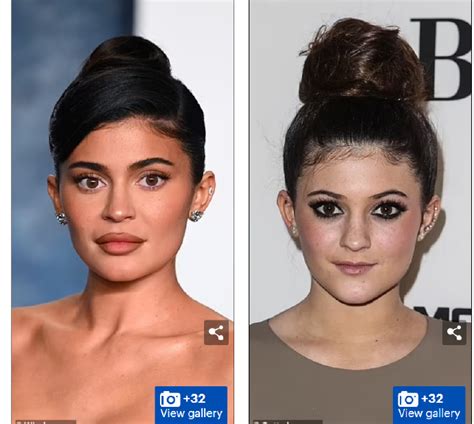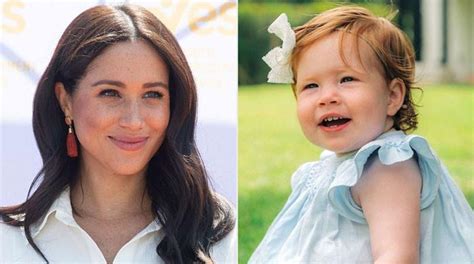
Dakota Johnson faced the scrutiny of a lie detector once again, revealing surprising truths about her acting career, personal life, and even her taste in limes, during a Vanity Fair segment. This second polygraph examination follows her initial session in 2020, providing fans with an even more intimate glimpse into the actress’s world.
The actress, known for her roles in the “Fifty Shades of Grey” franchise and more recently, “Madame Web,” gamely answered a series of probing questions, some serious and others more lighthearted. Among the revelations, Johnson admitted to bending the truth to secure acting roles early in her career and expressed a distinct preference for key lime pie over regular lime pie. The lie detector test also delved into her celebrity friendships and her family, including her famous parents, Melanie Griffith and Don Johnson.
During the Vanity Fair video, Johnson was asked if she had ever lied to get a role and she admitted, “Yes, I have,” when asked if she could ride a horse. The polygraph examiner, John Grogan, verified that she was telling the truth. This admission provides insight into the pressures and competitive nature of the acting industry, where securing a role can sometimes require a bit of embellishment.
The polygraph also explored Johnson’s culinary preferences. When asked if she preferred key lime pie to regular lime pie, Johnson responded affirmatively. The lie detector confirmed this statement as truthful, revealing a small but specific detail about her personal taste.
The segment also touched upon Johnson’s relationships with other celebrities. Although details are limited based on the source material, the polygraph likely explored the nature of these relationships and any potential rivalries or collaborations. Given the actress’s high profile, her interactions with other notable figures are of interest to many fans.
The lie detector test also provided glimpses into Johnson’s family life. As the daughter of actors Melanie Griffith and Don Johnson, and the granddaughter of actress Tippi Hedren, Johnson comes from a lineage steeped in Hollywood history. While the specifics of these family-related questions aren’t outlined in detail within the initial Yahoo article, the segment likely touched upon the influence her family has had on her career and personal life.
This second lie detector test builds upon the previous one, offering fans an opportunity to connect with Johnson on a more personal level. These moments of vulnerability and candor are often appreciated by fans who seek a glimpse beyond the carefully curated public persona of celebrities.
The article underscores the growing trend of celebrities engaging in these types of unconventional interviews to promote their projects and connect with their audience. The use of a lie detector adds an element of intrigue and authenticity, although the accuracy and reliability of such tests are often debated.
Johnson’s willingness to participate in a second lie detector test suggests a level of comfort and confidence in her own skin. It also highlights the changing landscape of celebrity interviews, where audiences increasingly demand transparency and authenticity from public figures. The full Vanity Fair segment likely contains even more revelations and insights, providing a comprehensive look at Dakota Johnson’s life and career.
Expanded Details and Context:
Dakota Johnson’s return to the Vanity Fair lie detector is more than just entertainment; it’s a calculated move in an era where authenticity is prized, yet often manufactured. To understand the significance of this event, one must delve deeper into the context of celebrity culture, the psychological aspects of lie detection, and Johnson’s own carefully constructed public image.
Celebrity Authenticity in the Digital Age:
In the age of social media and pervasive online scrutiny, celebrities are constantly battling a perception of inauthenticity. Every Instagram post, every red-carpet appearance, and every carefully worded interview is dissected and analyzed for hidden motives and ulterior agendas. This has led to a growing demand for genuine, unscripted moments that allow fans to connect with their favorite stars on a more human level.
Lie detector tests, while often taken with a grain of salt, offer a tantalizing promise of unfiltered truth. They create a sense of intimacy and vulnerability, as if the celebrity is letting their guard down and revealing their true selves. This perceived authenticity can be a powerful tool for building a stronger connection with fans and enhancing a celebrity’s overall image.
However, the use of lie detectors is not without its critics. Some argue that these tests are inherently unreliable and can be easily manipulated. Others contend that they are an invasion of privacy and exploit the vulnerability of the subject. Despite these concerns, lie detector tests remain a popular form of entertainment, particularly in the realm of celebrity interviews.
The Psychology of Lie Detection:
Lie detection, both in formal settings like criminal investigations and informal settings like celebrity interviews, is a complex and multifaceted field. The polygraph, the most commonly used lie detection device, measures physiological responses such as heart rate, blood pressure, respiration, and skin conductance. The underlying assumption is that lying causes stress and anxiety, which in turn triggers measurable changes in these physiological indicators.
However, the accuracy of polygraph tests is a subject of ongoing debate. Critics argue that these tests are susceptible to false positives and false negatives, and that individuals can learn to control their physiological responses to deceive the examiner. Factors such as anxiety, nervousness, and medical conditions can also affect the results.
Despite these limitations, polygraph tests are often used as a tool to assess credibility and gather information. In the context of celebrity interviews, the lie detector serves more as a theatrical prop than a scientifically valid instrument. The real value lies in the entertainment factor and the opportunity for the celebrity to engage in candid and humorous banter with the examiner.
Dakota Johnson’s Public Image:
Dakota Johnson has cultivated a unique and intriguing public image. She is known for her roles in both mainstream blockbusters and independent films, showcasing her versatility as an actress. She is also admired for her outspokenness on social and political issues.
Johnson has often been perceived as being more down-to-earth and relatable than many of her Hollywood peers. She has spoken openly about her struggles with mental health and her desire to use her platform to raise awareness and promote understanding.
Her willingness to participate in a second lie detector test is consistent with her image as someone who is willing to be open and honest with her fans. It also demonstrates her sense of humor and her ability to poke fun at herself. By embracing the inherent absurdity of the lie detector test, Johnson reinforces her image as someone who doesn’t take herself too seriously.
Analysis of the Specific Revelations:
The revelations from Johnson’s second lie detector test, while seemingly trivial, provide valuable insights into her personality and career.
-
Admitting to Lying to Get a Role: Johnson’s admission that she lied about her ability to ride a horse to secure an acting role is a candid glimpse into the cutthroat world of Hollywood. It highlights the pressures that actors face to present themselves as being more skilled or experienced than they actually are. This anecdote is relatable to many aspiring professionals in various fields who have, at some point, exaggerated their qualifications to land a job. It also subtly humanizes Johnson, portraying her as someone who is willing to bend the rules to achieve her goals.
-
Preference for Key Lime Pie: The seemingly insignificant revelation about Johnson’s preference for key lime pie over regular lime pie speaks to the power of personal preferences in shaping our identities. These small details can reveal a great deal about our tastes, values, and backgrounds. In Johnson’s case, her preference for key lime pie might be interpreted as a sign of her appreciation for the finer things in life or her penchant for unique and distinctive flavors.
-
Celebrity Friendships and Family Life: While the details surrounding Johnson’s celebrity friendships and family life are limited in the initial report, they are undoubtedly a source of fascination for fans. Johnson’s connections to other high-profile figures offer a glimpse into the inner circles of Hollywood and the dynamics of celebrity relationships. Her family history, as the daughter of Melanie Griffith and Don Johnson, adds another layer of intrigue and provides a context for understanding her career path.
The Broader Implications:
Dakota Johnson’s second lie detector test is a microcosm of the broader trends shaping celebrity culture and the media landscape. It reflects the increasing demand for authenticity, the blurring lines between public and private lives, and the growing importance of personal branding.
As celebrities continue to navigate the challenges of maintaining their relevance in a rapidly changing world, they will likely continue to experiment with unconventional forms of self-expression and audience engagement. Lie detector tests, with their promise of unfiltered truth and their inherent entertainment value, may become an increasingly common tool in the celebrity arsenal.
In conclusion, Dakota Johnson’s decision to undergo a second lie detector test is a carefully calculated move that reflects the evolving dynamics of celebrity culture. By embracing vulnerability and humor, she reinforces her image as someone who is authentic, relatable, and willing to engage with her fans on a personal level. The revelations from the test, while seemingly trivial, provide valuable insights into her personality, career, and the broader trends shaping the entertainment industry.
Here are 5 Frequently Asked Questions (FAQ) related to the news:
1. What was the main purpose of Dakota Johnson taking another lie detector test?
The main purpose appears to be a combination of entertainment and promotion. It provides a platform for Johnson to connect with her fans on a more personal level, offering candid glimpses into her life and career, and likely promoting her recent projects. The lie detector test format adds an element of intrigue and perceived authenticity, which can generate buzz and increase engagement.
2. Did Dakota Johnson reveal any significant secrets during the lie detector test?
While the specific details of all the questions and answers aren’t fully available without watching the entire Vanity Fair video, one notable revelation was her admission to having lied to get a role early in her career, specifically claiming she could ride a horse. Other revelations included her preference for key lime pie and likely some insights into her relationships with other celebrities and her family. The “significance” is subjective, but these details offer a more personal look at Johnson beyond her public persona.
3. How reliable are lie detector tests, and should the results be taken as definitive truth?
The reliability of lie detector tests is a subject of ongoing debate within the scientific community. While polygraphs measure physiological responses such as heart rate, blood pressure, and skin conductance, these responses can be influenced by factors other than deception, such as anxiety, nervousness, or medical conditions. Critics argue that lie detector tests are susceptible to false positives and false negatives, and that individuals can learn to manipulate their physiological responses to deceive the examiner. Therefore, the results of lie detector tests, especially those used for entertainment purposes, should not be taken as definitive truth. They are best viewed as a form of entertainment and a tool for generating conversation.
4. How does this lie detector test compare to Dakota Johnson’s previous one in 2020?
Without access to specific details about the questions asked in the 2020 test, it’s difficult to make a direct comparison. However, it can be inferred that the general format and purpose were similar: to provide fans with a more intimate and candid glimpse into Johnson’s life. This second test likely built upon the first, exploring new aspects of her personality, career, and relationships. The fact that she participated in a second test suggests a level of comfort and willingness to engage in this type of unconventional interview.
5. What does Dakota Johnson’s participation in a lie detector test say about the current state of celebrity culture and the media landscape?
Dakota Johnson’s participation in a lie detector test reflects several key trends in celebrity culture and the media landscape:
-
The Demand for Authenticity: In an age of social media and carefully curated public images, audiences increasingly crave authenticity and genuine connection with celebrities. The lie detector test format, while not scientifically foolproof, offers a perceived glimpse behind the curtain, creating a sense of intimacy and vulnerability.
-
The Blurring Lines Between Public and Private: Celebrities are increasingly willing to share personal details about their lives in order to connect with their fans and maintain their relevance. The lie detector test blurs the lines between public and private, inviting the audience into the celebrity’s inner world.
-
The Importance of Personal Branding: Celebrities are essentially brands, and they must constantly find new and innovative ways to market themselves and stay relevant. The lie detector test is a unique and attention-grabbing form of self-promotion that can generate buzz and increase engagement.









